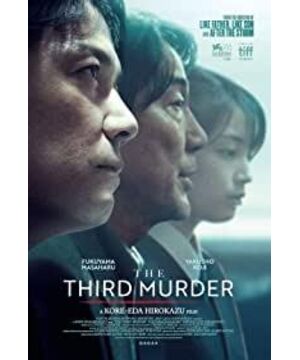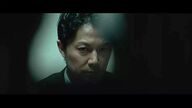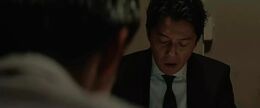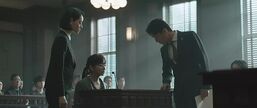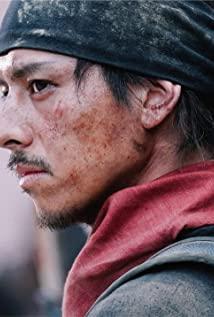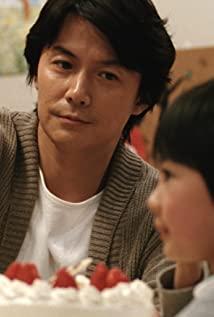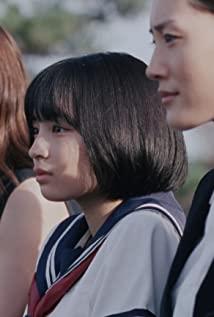I've always wanted to see this movie. It was Hirokazu Koreeda who made a suspense movie. This combination is too tempting. I especially want to see how the quiet and elegant director shows the dark side.
But after watching the movie with a confused face, this is not a suspense movie at all. It discusses the relationship between law and human beings through the body of law and trial. Going deeper into the discussion, it involves the philosophy of whether human beings can judge human beings. The proposition can be said to be a fusion of the social and philosophical schools.
The film shows many unique symbols of Hirokazu Koreeda, such as still life shots, light and shadow characteristics, and even through the pictures of his father cooking, to interpret the traditional father-son oppositional relationship. I like this picture very much. In the traditional father-son relationship, there are nurture, cultivation, rebellion, understanding, inheritance and persistence. Such traditional things are better and more persuasive to show by Hirokazu-eda. In addition, the soundtrack of this film is so beautiful, and the pathos and atmosphere of the piano are very suitable for such a wide-ranging film.
On the other hand, the film explores the issue of "containers". From my personal understanding, this container is human, and it is filled with social elements. The individual is the carrier of society, and human crime is ultimately the feedback of social problems. At the same time, the container is also a kind of emotional relationship between people. In the beginning, Masaharu Fukuyama and Koji Koji are opposite shots, a lawyer and a criminal. They are the leading and rescued characters, but as the case deepens, the emotional world displayed by the criminal has been reacted, participated and given back by the lawyer. At the end, the heads of the two slowly overlapped through the glass reflection, and finally Masaharu Fukuyama withdrew. Can people's consciousness and emotions be further communicated, and can we fully agree with one point of view and one emotion? In the interaction between people, whether we can retreat completely, whether we can continue to live with each other's "residuals" after such a container overlaps, and finally, it is fascinating to stop at the crossroads of Fukuyama Masaharu.
From a crime story, it doesn't matter who the killer is. The law is procedurally fair and just, but it is people who enforce the law. How can people judge people? Is it just a difference of knowledge, credentials and position? Can a sinner sin for justice? And who will bear the consequences? The criminal played by Koji Yakusuo frequently revised his testimony, not to exonerate his crimes, but to maximize punishment. At that moment, he was not a criminal, he was a judge. Yakusho Koji created a criminal who welcomed the Holy Light.
Many people are criticizing, who is the murderer? Coupled with Hirokazu Kore-eda's slow, personal style of shooting, many people are complaining. But these are not the points of discussion for Hirokazu Kore-eda. It is recommended that the viewers magnify their eyes a little, and try to figure it out from the perspective of people, society, law, and redemption. What kills is society, what kills is fate, and man is just the container that bears everything.
The relationship between people is sometimes the collision of containers.
View more about The Third Murder reviews


